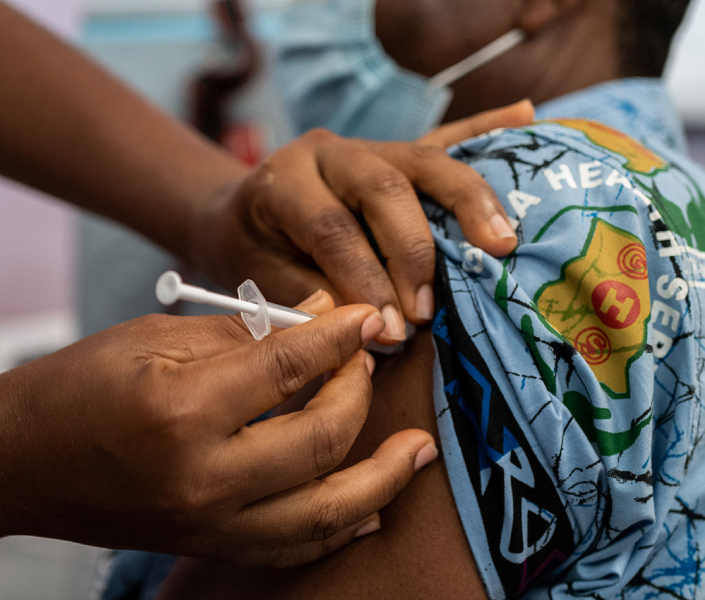Progress report African region 21 - 1. The Context

With the arrival of newer, more aggressive COVID-19 variants during the first quarter of 2021, African countries battled multiple, complex humanitarian crises, the shutdown of health programmes and clinical services, pandemic fatigue, an exhausted workforce, and the economic fallout. Combined, these factors tipped the Region into a third wave of the virus, with numerous cases of alerts, resurgence, and situations of concern. This third wave had followed a three-month period of calm, during the first quarter of the year, when stringent public health measures applied over an extended period had seemingly buffered Africa’s historically fragile health systems.
Imbued with improved testing and tracing capacities, along with fewer COVID-19 patients, countries slowly began to reintroduce health programmes and services and routine immunization, which had been paralysed at the peak of the pandemic. The declining numbers also gave communities a false sense of security. For this reason, and under pressure to resume economic activity, many countries suspended the enforcement of public health measures that are key to curbing the spread of the virus, such as face mask wearing, hand washing, cross-border movement controls, social-physical distancing, and symptom-related triage and referral. Similarly of concern, the required mass vaccination roll-out remained low in most African countries, as compared to other parts of the world, even as new COVID-19 variants emerged.
In this scenario, the WHO African Region’s response entered the second year of the pandemic with a considerable body of knowledge, lessons learnt, and applied research accumulated during and from the first year of the crisis. These served to further backstop its ‘whole of organization’ approach as a regional advisor and convenor, pursuant to its global health security mandate. Cognizant of the implications of the COVID-19 virus for health systems already at breaking point, WHO-AFR continued to broker Africa’s expanded ability to undertake real-time polymerase chain reaction testing (PCR), and genomic diagnostics. Its emergency response team worked directly with Member States and partners at the regional and country level to improve contact tracing and surveillance, boost oxygen supplies, and train medical personnel for comprehensive case management.
On the vaccine front, alarmed at the rate which new COVID-19 variants triggered new levels of infection, and mindful of buffering Africa from a chronic cycle of virus resurgence, the WHO-AFR team strongly advocated for and secured the promise of more predictable and timely vaccine distribution. Although this distribution was only beginning to materialize by the end of July, our team worked with the 47 Member States in the Region to adopt flexible, adaptive vaccination roll-out plans, considering stacked logistics, vaccine storage and distribution channels. Applied under the auspices of the Access to COVID-19 Tools Accelerator (ACT-A), these plans were based on our 70-year experience and creativity in regional routine vaccination campaigns. No less important, the team launched an important public information strategy to combat the continued epidemic-like proportions of false and misleading information on the pandemic.




